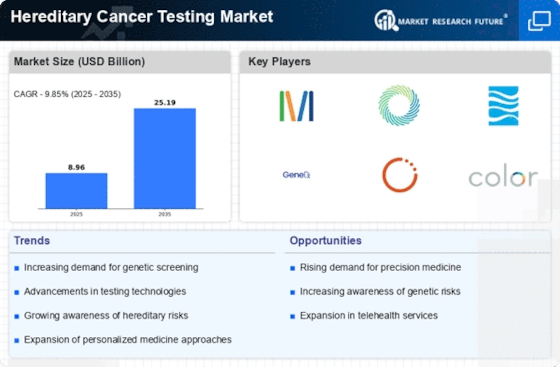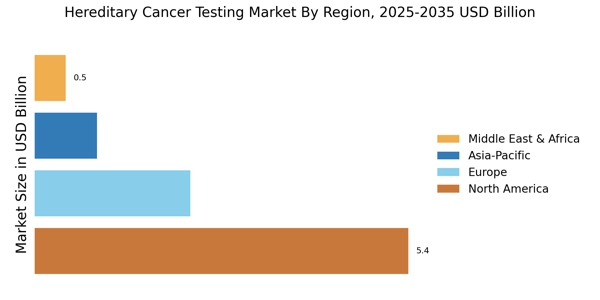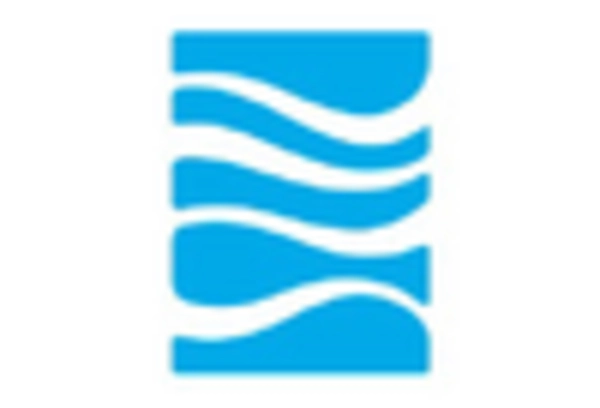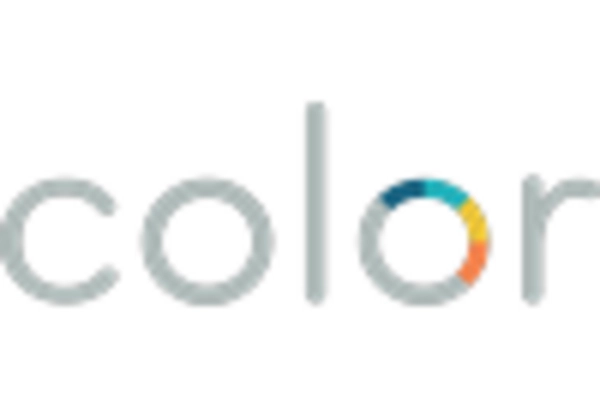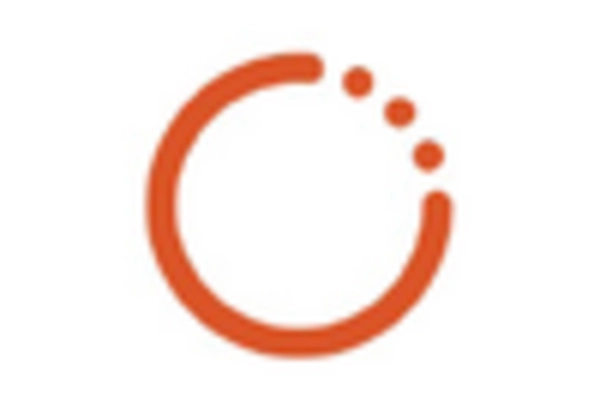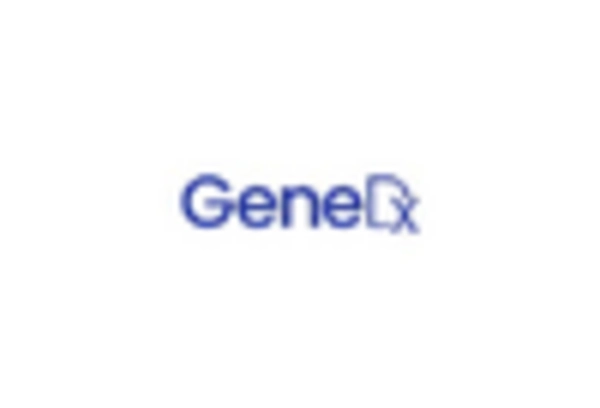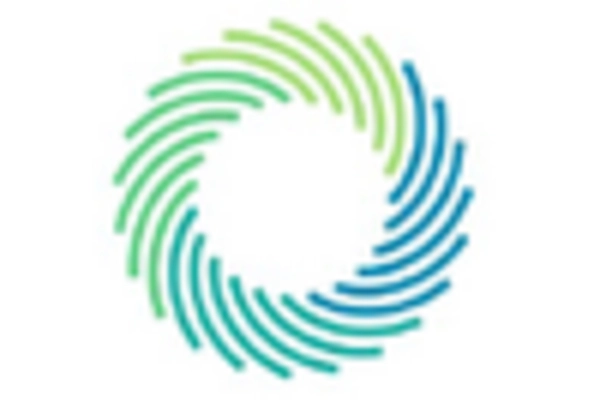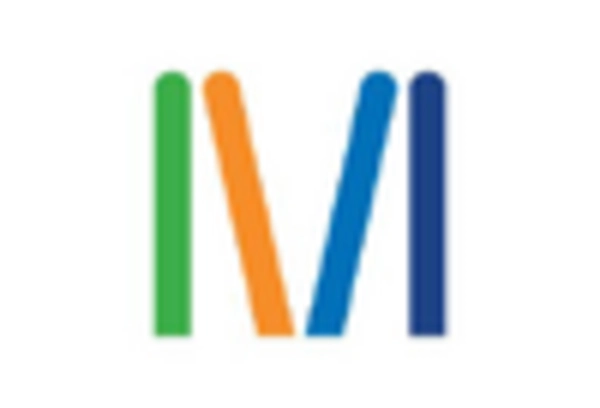Growing Demand for Preventive Healthcare
The increasing emphasis on preventive healthcare is a significant driver for the Hereditary Cancer Testing Market. As healthcare systems shift towards proactive measures, individuals are more inclined to undergo genetic testing to assess their risk for hereditary cancers. This trend is supported by a growing body of evidence suggesting that early detection can lead to better health outcomes. For example, individuals with BRCA1 or BRCA2 mutations may opt for preventive surgeries or enhanced surveillance strategies. The market is projected to grow as more healthcare providers advocate for genetic testing as a standard part of preventive care. This shift not only empowers patients but also aligns with broader public health initiatives aimed at reducing cancer incidence, thereby bolstering the Hereditary Cancer Testing Market.
Increasing Incidence of Hereditary Cancers
The rising incidence of hereditary cancers is a pivotal driver for the Hereditary Cancer Testing Market. As more individuals are diagnosed with hereditary forms of cancer, the demand for genetic testing services escalates. For instance, data indicates that approximately 5 to 10% of all cancers are hereditary, with breast and ovarian cancers being the most prevalent. This growing recognition of hereditary cancer predisposition has led to an increased focus on genetic testing, as individuals seek to understand their risks and make informed health decisions. Consequently, healthcare providers are more inclined to recommend genetic testing, thereby propelling the market forward. The Hereditary Cancer Testing Market is thus positioned to expand as awareness of genetic risks continues to rise.
Advancements in Genetic Testing Technologies
Technological advancements in genetic testing methodologies are significantly influencing the Hereditary Cancer Testing Market. Innovations such as next-generation sequencing (NGS) and whole exome sequencing have enhanced the accuracy and efficiency of genetic tests. These technologies allow for comprehensive analysis of multiple genes simultaneously, which is particularly beneficial for identifying hereditary cancer syndromes. The market has witnessed a surge in the adoption of these advanced testing methods, as they provide quicker results and reduce costs. Furthermore, the integration of artificial intelligence in data analysis is expected to streamline the testing process, making it more accessible to patients. As these technologies continue to evolve, they are likely to drive further growth in the Hereditary Cancer Testing Market.
Regulatory Support and Reimbursement Policies
Supportive regulatory frameworks and favorable reimbursement policies are crucial drivers for the Hereditary Cancer Testing Market. Governments and health organizations are increasingly recognizing the importance of genetic testing in cancer prevention and management. As a result, many countries have implemented policies that facilitate access to genetic testing services. For instance, certain health insurance plans now cover hereditary cancer testing, making it more affordable for patients. This financial support encourages more individuals to seek testing, thereby expanding the market. Additionally, regulatory bodies are working to streamline the approval processes for new genetic tests, which may further enhance market growth. The Hereditary Cancer Testing Market stands to benefit from these supportive measures, as they promote wider adoption of testing services.
Rising Public Awareness and Education Initiatives
Public awareness and education initiatives regarding hereditary cancers are increasingly driving the Hereditary Cancer Testing Market. Campaigns aimed at educating the public about genetic risks and the benefits of testing have gained momentum. Organizations and healthcare providers are actively disseminating information about the importance of understanding hereditary cancer risks, which has led to a more informed population. This heightened awareness is likely to result in increased demand for genetic testing services, as individuals seek to take control of their health. Furthermore, educational programs targeting healthcare professionals are also essential, as they equip providers with the knowledge to recommend testing appropriately. As awareness continues to grow, the Hereditary Cancer Testing Market is expected to experience substantial growth.


